This “Limited Edition” Blu-ray from Radiance Films is now available for purchase.
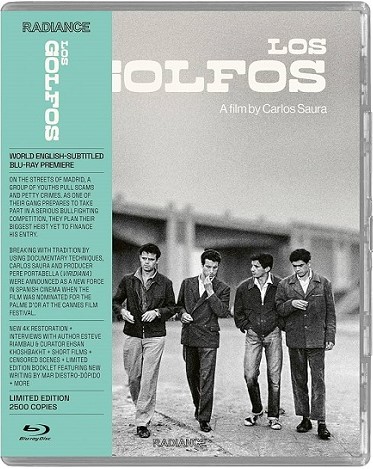
Some movies serve as incredible windows into an era. The 1960 release Los Golfos aka The Delinquents is one of those features. It is a narrative that doesn’t present a completely authentic, neorealist vision (there are some elaborate camera moves and a few story beats that feel orchestrated) like Italian films of the late 40s and early 50s, this effort still paints an incredibly believable and vivid picture of life in Spain. Radiance Films has once again found another incredible international title and is presenting it as a “Limited Edition” Blu-ray with a stunning image and some incredible extras.
The plot involves a group of young and poor individuals attempting to survive on the outskirts of Madrid and make a better life for themselves. Of course, under the authoritarian Francisco Franco regime, the only way for the financially strapped to crawl out of poverty is through criminal activity. Julián (Manuel Zarzo), Ramón (Luis Marin), Juan (Oscar Cruz), el Chato (Juanjo Losada), Paco (Ramon Rubio) and Manolo (Rafael Vargas) are the young men struggling to make something of themselves. To do so, the gang engages in petty crimes, including robberies, as well as stealing from delivery trucks.
The group realize that this isn’t really leading them anywhere and a few members have different aspirations. In particular, Jaun wants to be a bullfighter. His pals support his dream to get out of their impoverished district, but soon learn that for him to get his big break by performing to a crowd in an arena, they need to pay a show promoter a hefty advance. Their illegal activities become bigger and more dangerous in order to accomplish this goal.
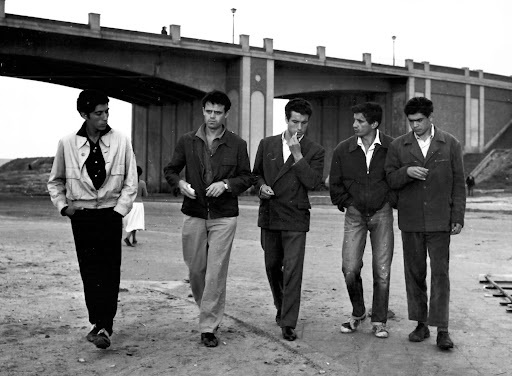
Over the course of the tale, there is infighting between members when some bristle at the more brazen crimes. But the group members are left with no other options. Of course, things do not go according to plan, with one friend meeting a terrible fate. And, when Juan finally gets his opportunity to impress in the bullfighting ring, it all goes sideways and presumably leaves the group back where they started, with even less hope for the future.
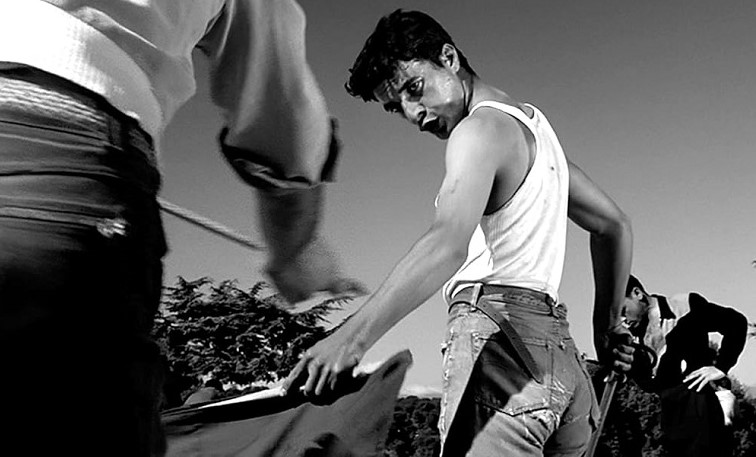
This picture marked the directorial debut of Carlos Suara, who over his career would go on to make other Spanish classics like The Hunt, Cria Cuervos, Carmen, Flamenco and many others. Because of the Franco regime under which this title was made, it was heavily censored after its debut at the Cannes Film Festival. Approximately 12 minutes of footage was removed by the government. Only after the chops were made did the feature receive a brief release in Spain two years later.
As the decades have passed, most of the missing footage has been recovered and this edition is considered the closest to the original version that was presented at Cannes. In fact, the film has been restored in 4K Filmoteca Española in collaboration with Films 59 at Digital and Electronic Systems laboratory from the 35mm acetate negative. 35mm prints and other intermediate photochemical materials were used to rescue some of that lost footage and incorporate it into the body of the work. They’ve done an exceptional job and it’s nearly impossible to identify the added material.
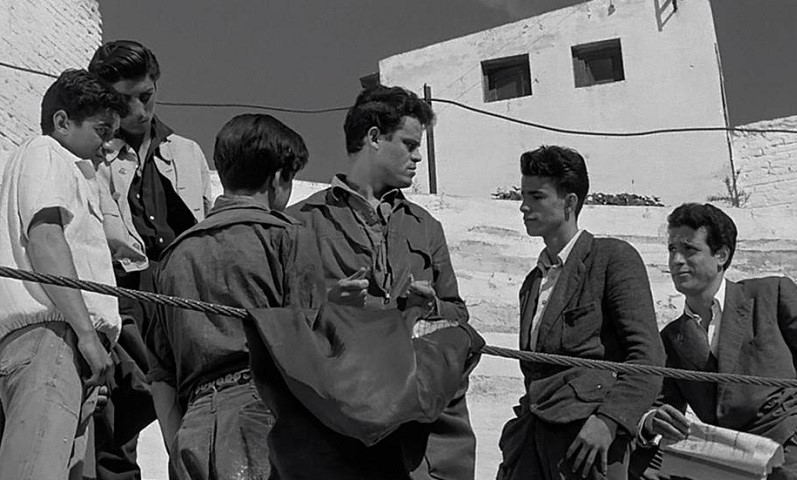
Overall, this new edition looks incredible and presents a sharp and detailed image. You can see all of the dirty and run-down Madrid factories, streets and backgrounds with near crystal clarity, including dark blacks and bold images. This is one of those releases that really stuns and the image is so good that, on my system some shots almost seem to possess the illusion of depth.
I was particularly impressed with the bigger vistas. Most impressive is the bustling food market that one of the characters works at, and which the others visit and attempt to steal from. Clearly, the actors were allowed to wander around and shoot at a working market, and one can see that everything around the characters look worn and of an earlier era. There are none of the new technical advances that would have been around in other countries at the time, with the movie showing the real harshness of life.
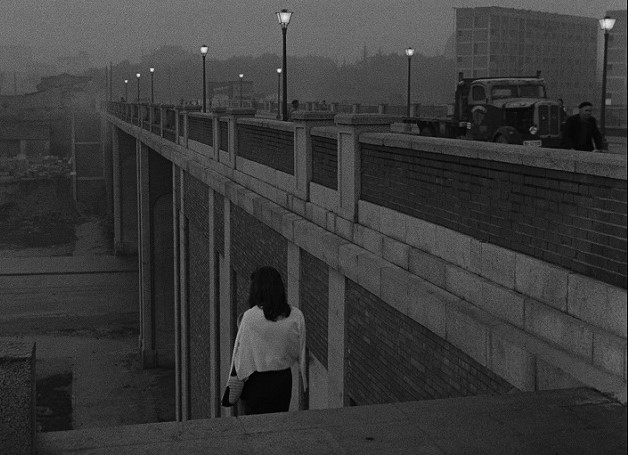
And while the early small-time crimes aren’t deadly, they are uncomfortable to watch. Young ruffians are forced to take advantage of the elderly and (in one instance) blind in order to get what they want. It again emphasizes just how horrible life could be in this part of the city at this point in history. In the end, this excellent film is deserving of its classic status, making a lasting impression with its striking images and memorable moments.
Extras on the Blu-ray are equally engaging. There are a couple of engaging interviews with Spanish film historians. The first features author and former director of Filmoteca Catalunya Esteve Riambau, who talks about the country under Franco rule. He notes that, during the 50s and early 60s, the authoritarian leader managed to convince the American president Dwight Eisenhower that his ugly regime should be supported because it was fighting communism and leftist ideals.
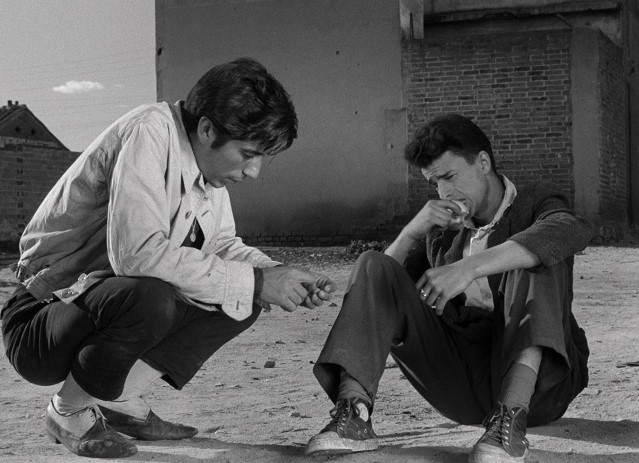
Additionally, the speaker notes how the images in the film show the country at a standstill, failing to move into the future and suffering greatly from economic failure. He talks about director Saura’s career and how the filmmaker would come under fire from the government. It seems the film subtly delivers some criticism of the regime, but only so much… as censorship and reprisals prevented bolder statements. All of the information is fascinating to hear.
The second critic goes into many of the director’s other titles and shows how he was pushing boundaries throughout his career. He also goes into detail about this film’s historical significance. The speaker mentions the scenes that were censored, noting that much of the edits had to do with images that the conservative regime considered “blasphemous”. A heavily trimmed party scene involves two people making out underneath a painting of a religious figure, while a complete sequence involving one of the young leads and his girlfriend conversing in bed was removed. Again, this speaker gives some valuable insight.
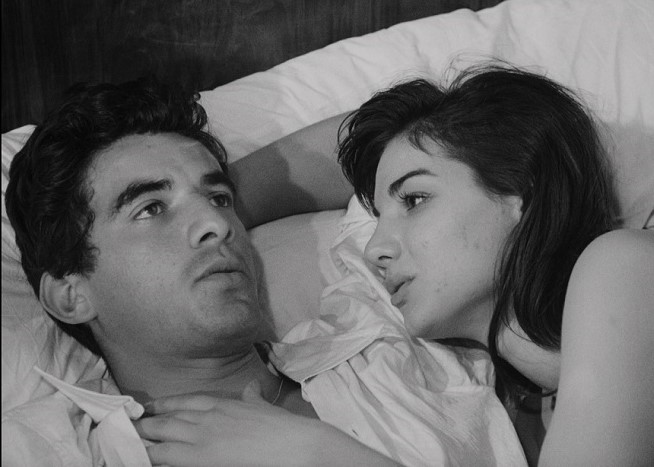
There is another extra that gets even more specific about the film’s censorship, showing all the cuts that were made by the government after its Cannes premiere. There are written comments from the censor board about what they disapproved of and the necessary changes, which is interesting to behold. You’ll also see a fragment of a shot featuring a notable line of dialogue from the film. This bit was removed from a conversation in which a character laments about how difficult it is to survive in Madrid. The complete shot wasn’t recovered and thus they were unable to restore this line into the film.
These features are worthwhile enough, but Radiance Films has also included two shorts from the moviemaker. La llamada (1955) is a melancholy story about a man preparing to leave his family behind and go off to war. The print is a little beat up, but the film and its sentiment is moving. La Tarde del Domingo (1957) is a more developed and accomplished effort about a live-in maid living an oppressed life. There is some impressive photography of the city and one can see a natural progression between the short and Los Golfos.
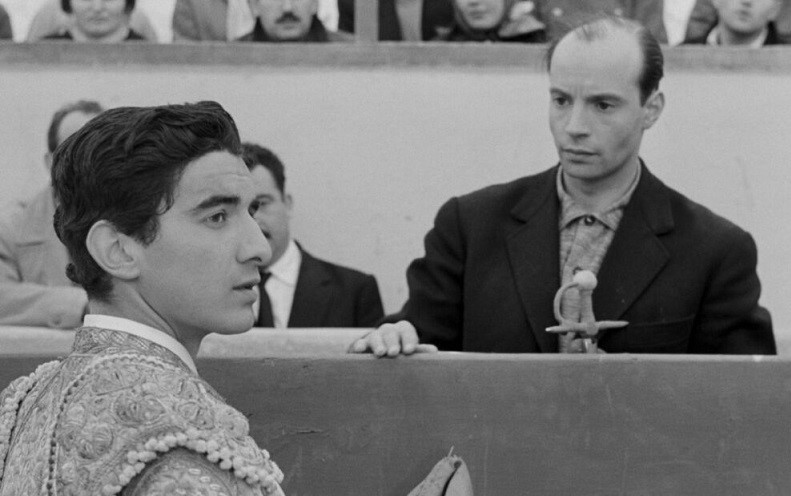
As with other titles from Radiance Films, there is a booklet with extra writing on the picture and a reversible sleeve with original and newly commissioned art for the film.
Los Golfos is another winner from Radiance Films, delivering a classic Spanish film with an incredible transfer and some great extras that will help viewers appreciate the film even more. It is distinctive in its own way from Italian neorealism, but anyone who appreciates those works would also enjoy this effort. This “Limited Edition” Blu-ray is definitely worth seeking out and picking up.


